Happy Mother’s Day!
Love you!
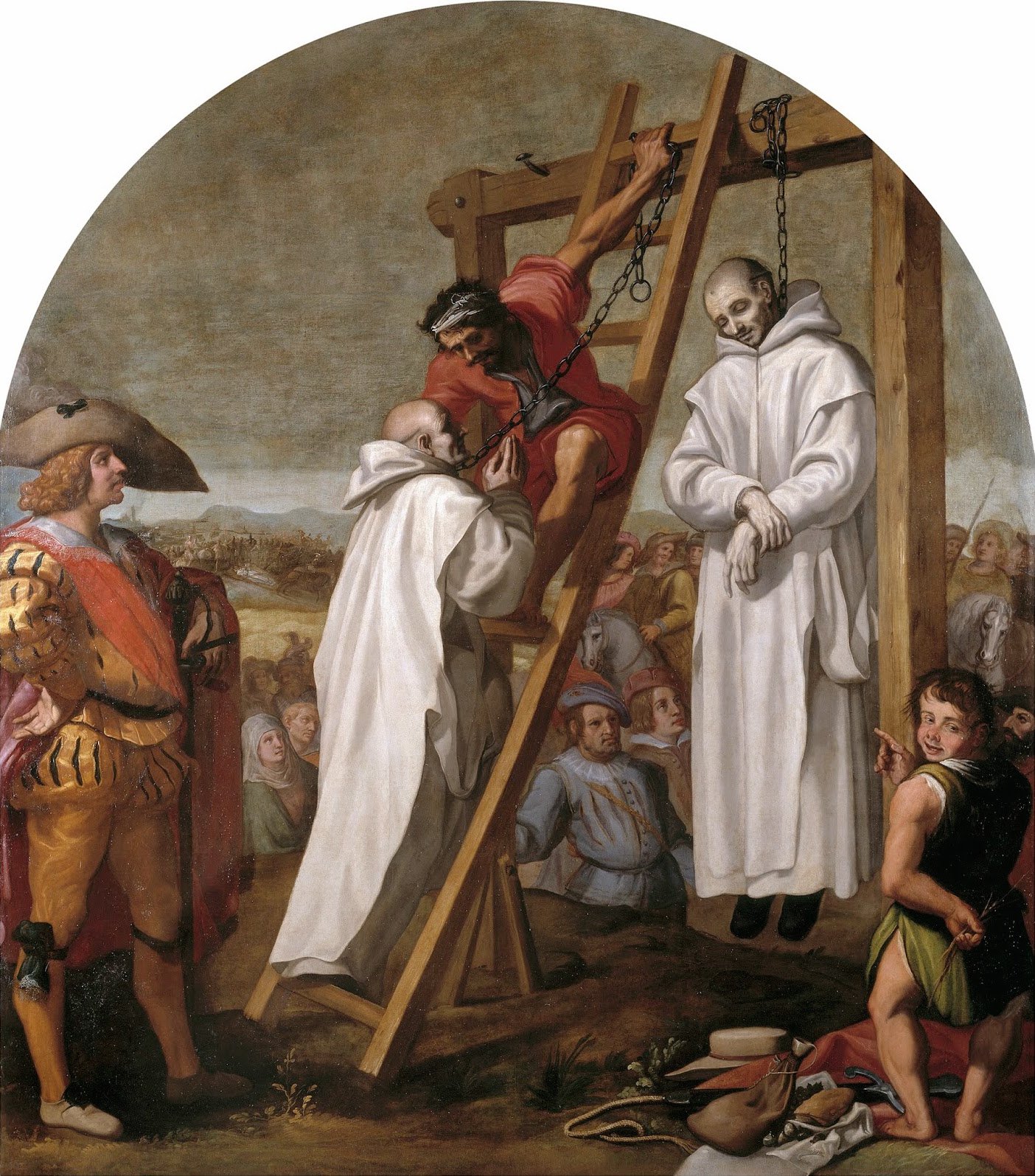 Today in the Roman Martyrology, the Church gives us feast of Blesseds John Rochester and James Walworth: English Catholic priests, Carthusian monks, and martyrs of the Protestant Reformation—hanged at York on this day in 1537, after refusing to sign King Henry VIII’s Oath of Supremacy.
Today in the Roman Martyrology, the Church gives us feast of Blesseds John Rochester and James Walworth: English Catholic priests, Carthusian monks, and martyrs of the Protestant Reformation—hanged at York on this day in 1537, after refusing to sign King Henry VIII’s Oath of Supremacy.
Pope Leo XIII beatified the Fathers in 1888.
You may want to read the description of the painting about Fathers Rochester and Walworth here.
Can we give our lives to Christ and the Church in the way that Blesseds John and James did?
Music is essential to life. Sacred music –that which is lived and performed in the Liturgy– is crucial important and integral to the worship of God. Yes, we live the text and the notes.
I love music. I love listening to music. I love sharing the experience of listening to music with others. I love purchasing, supporting musicians, and the like. I don’t sing even though I probably have one note (like everybody else).
The “normal” parish does not spend enough time thinking about the sacred music program never mind spending money on it. Even a financially strapped parish could put $50.00 per week away for sacred music. More important to money is the understanding of pastor and laity have regarding the music and give personal, informed and reasonable interest to it and the people involved. The worship of God is paramount; the lifting of our soul is desired and beautiful and healing.
I stumbled upon Benedict Sheehan’s blog post “Good Church Music Starts with Kids” and I think he’s spot-on and parishes, especially Catholic parishes, need to attend to what he Benedict proposes.
Benedict Sheehan regularly posts at The Music Stand –visit him there.
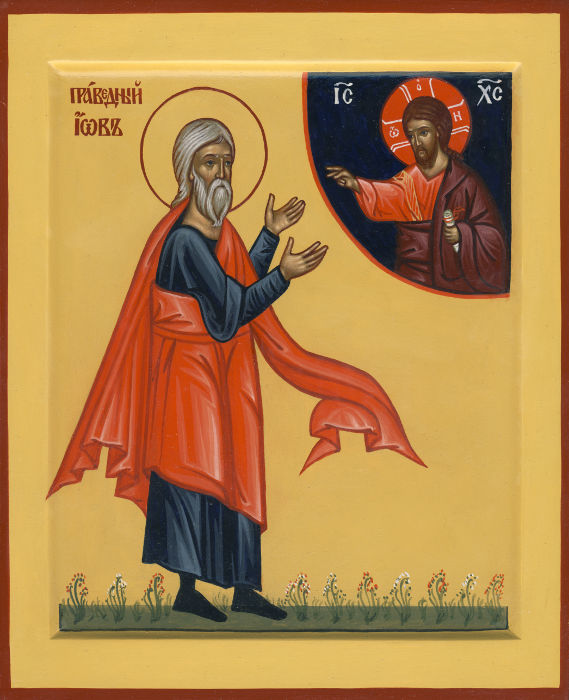 The Prophet Job’s feast on the Byzantine liturgical calendar is May 6 and the Latin Church’s liturgical calendar on May 10.
The Prophet Job’s feast on the Byzantine liturgical calendar is May 6 and the Latin Church’s liturgical calendar on May 10.
Job is the archetype of the just man. According to the religious and ethical thought of his time, which viewed material prosperity as evidence of an upright life, Job was expected to be wealthy, and yet he was afflicted with suffering. Modern scholars point out that Job was not a historical person, but an ‘epic character.’ While this is no doubt the case of the Job of the first of the Wisdom books, the author probably based his work on the Job of ancient tradition, who was believed to have lived during the patriarchal age on the borders of Arabia and Edom.
The Book of Job is cast in dialogue form between Job and three friends who come to commiserate with him over his misfortunes. They insist that his condition is a punishment from God for his sins, but Job maintains that he is innocent. Near despair, he demands a hearing from God, and this he is granted. God speaks from a thunderstorm to expose as futile all the solutions of Job and his friends since God cannot be judged and his ways are inscrutable.
The Church uses the book of Job during Holy Week, where Job’s suffering innocence serves as a prophetic reflection of the innocent suffering of Christ.
Meditation by the New Skete Communities
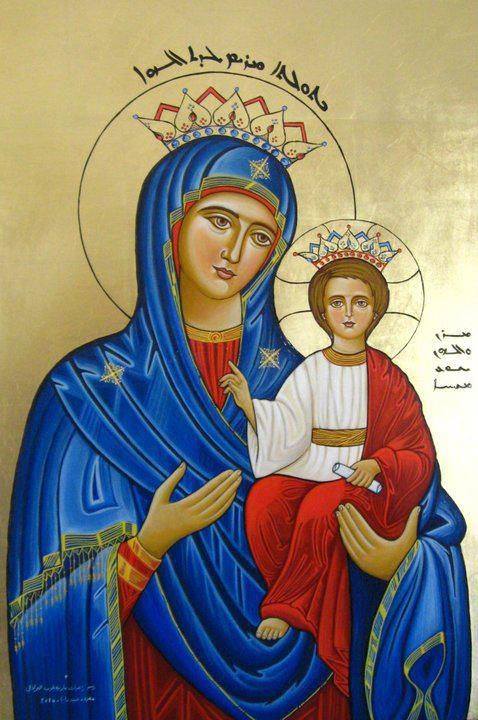 In another place, I posted the following on Mary’s place in the theology of St Ephrem.
In another place, I posted the following on Mary’s place in the theology of St Ephrem.
The month of May is traditionally known on as the Month of Mary. The Church holds Mary in the highest esteem; she is venerated but not worshipped by Catholics and Orthodox. A Syrian Father, St Ephrem, –the Harp of the Holy Spirit– the fourth century hymnographer, theologian and deacon as something to offer about the Mother of God.
“As lightning illuminates what is hidden, so also Christ purifies what is hidden in the nature of things. He purified the Virgin also and then was born, so as to show that where Christ is, there is manifest purity in all its power. He purified the Virgin, having prepared Her by the Holy Spirit… having been born, He left Her virgin. I do not say that Mary became immortal, but that being illuminated by grace, She was not disturbed by sinful desires”
“Most holy Lady, Mother of God, alone most pure in soul and body, alone exceeding all perfection of purity… alone made in thy entirety the home of all the graces of the Most Holy Spirit, and hence exceeding beyond all compare even the angelic virtues in purity and sanctity of soul and body… my Lady most holy, all-pure, all-immaculate, all-stainless, all-undefiled, all-incorrupt, all inviolate spotless robe of Him Who clothes Himself with light as with a garment… flower unfading, purple woven by God, alone most immaculate.”
“There is in you, Lord, no stain, nor any spot in your mother.”
“You Jesus and your mother are the only ones who are beautiful in all aspects. Because in you, O Lord, there is no deformation, and in your mother, there is no stain.”
“The two women were pure and simple, Mary and Eve. One of them, however, became the cause of our death and the other, the cause of our life.”
St. Ephrem the Syrian
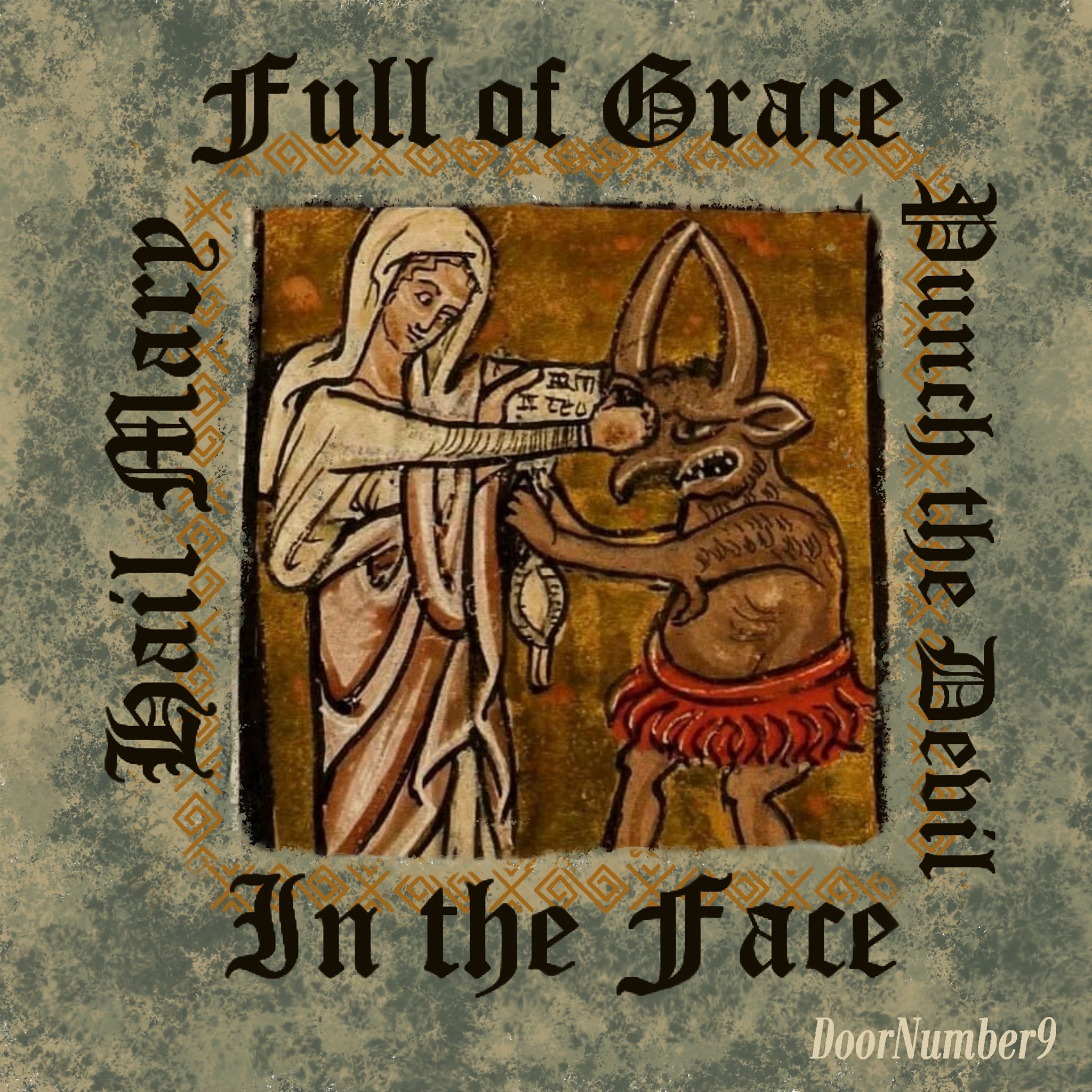 We begin the month of May and therefore the month of Mary.
We begin the month of May and therefore the month of Mary.
“The correct Marian devotion guarantees to faith the coexistence of indispensable ‘reason’ with the equally indispensable ‘reasons of the heart,’ as Pascal would say. For the Church, man is neither mere reason nor mere feeling, he is the unity of these two dimensions. The head must reflect with lucidity, but the heart must be able to feel warmth: devotion to Mary (which ‘avoids every false exaggeration on the one hand, and excessive narrow-mindedness in the contemplation of the surpassing dignity of the Mother of God on the other,’ as the Council urges) thus assures the faith its full human dimension.” (Vittorio Messori, The Ratzinger Report, Ignatius Press, 1985)
What Marian devotions will you take part in this month?
The May 2019 Prayer intention of Pope Francis is for unity among the African peoples.
That the Church in Africa, through the commitment of its members, may be the seed of unity among her peoples and a sign of hope for this continent.
May the Holy Family hear and answer our prayers.
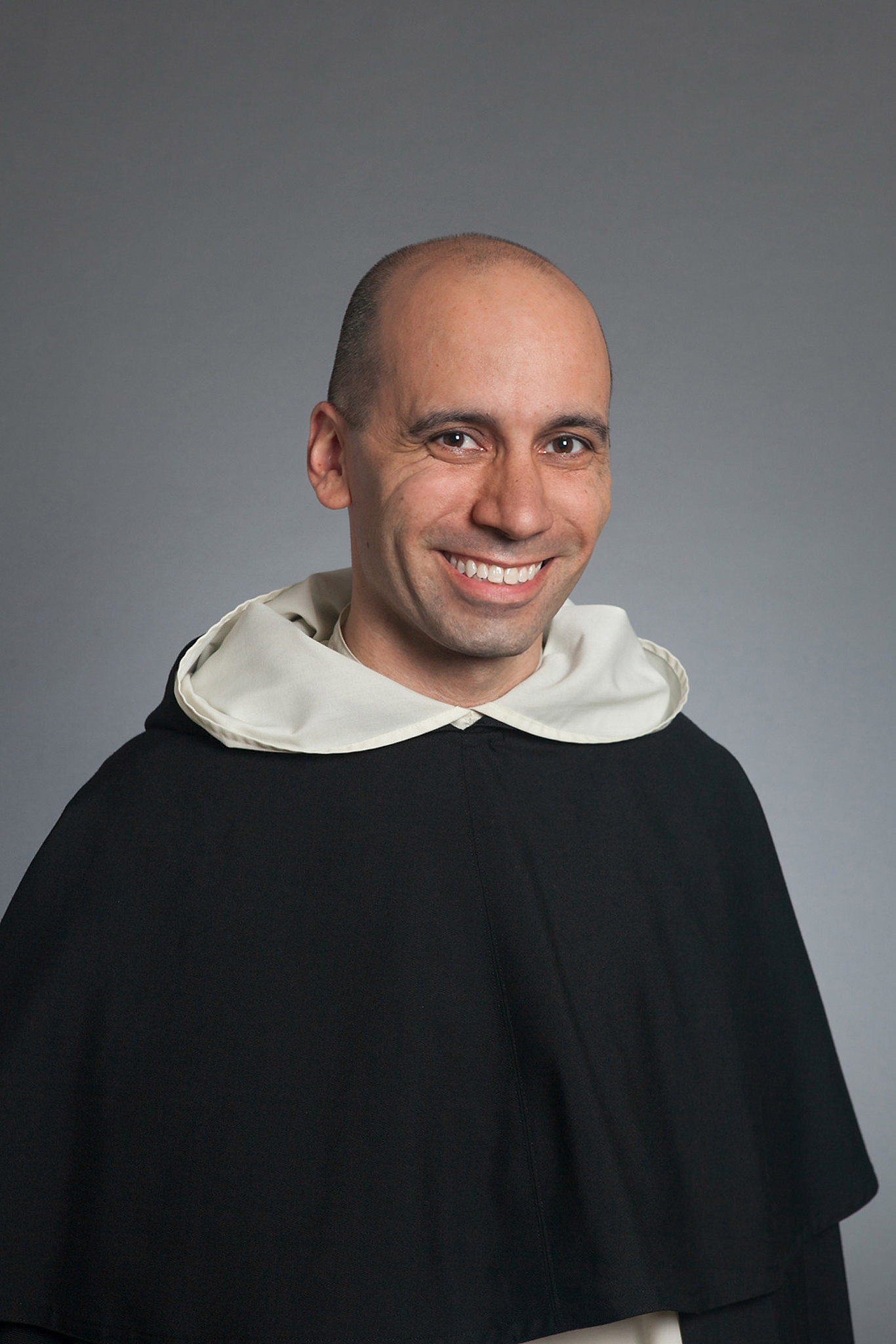 On May 4, at 3pm, join the Dominican Nuns and many others as they pray the holy rosary, sing Vespers and crown the Blessed Mother with flowers. Benediction of the Most Blessed Sacrament, too.
On May 4, at 3pm, join the Dominican Nuns and many others as they pray the holy rosary, sing Vespers and crown the Blessed Mother with flowers. Benediction of the Most Blessed Sacrament, too.
Father Isaac Morales, OP, celebrant and preacher
Our Lady of Grace Monastery
11 Race Hill Road, North Guilford, CT
Why crown Mary?
“The queen symbol was attributed to Mary because she was a perfect follower of Christ, who is the absolute ‘crown’ of creation. She is the Mother of the Son of God, who is the messianic King. Mary is the Mother of Christ, the Word Incarnate … ‘He will be great and will be called Son of the Most High; the Lord will give Him the throne of His father David; and He will reign over the house of Jacob forever; and of His kingdom there will be no end.’ Elizabeth greeted the Blessed Virgin, pregnant with Jesus, as ‘the mother of my Lord.’ Mary is the perfect follower of Christ. The maid of Nazareth consented to God’s plan; she journeyed on the pilgrimage of faith; she listened to God’s Word and kept it in her heart; she remained steadfastly in close union with her Son, all the way to the foot of the Cross; she persevered in prayer with the Church. Thus, in an eminent way, she won the ‘crown of righteousness,’ ‘the crown of life,’ ‘the crown of glory’ that is promised to those who follow Christ.”
(St. John Paul II, Order of Crowning an Image of the Blessed Virgin Mary, 1987)
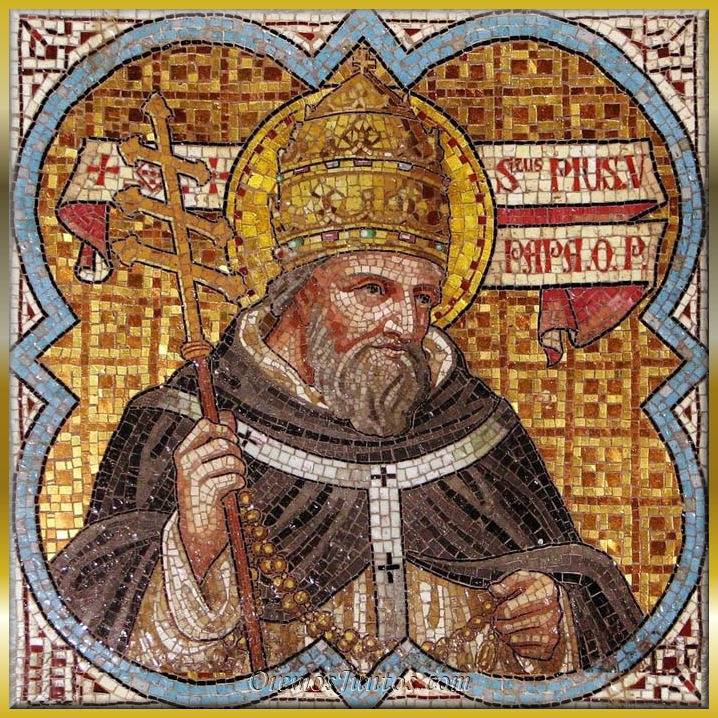 Today, we have the liturgical memorial of Pius V, pope and friar in the Order of Preachers.
Today, we have the liturgical memorial of Pius V, pope and friar in the Order of Preachers.
Elected to the Chair of Saint Peter he renewed with great mercy and apostolic vigor, according to the decrees of the Council of Trent, the divine worship of the Latin Church plus gave new life to Christian morality and the ecclesiastical discipline and promoted the propagation of faith.
May St. Pius V intercede for us today and always.